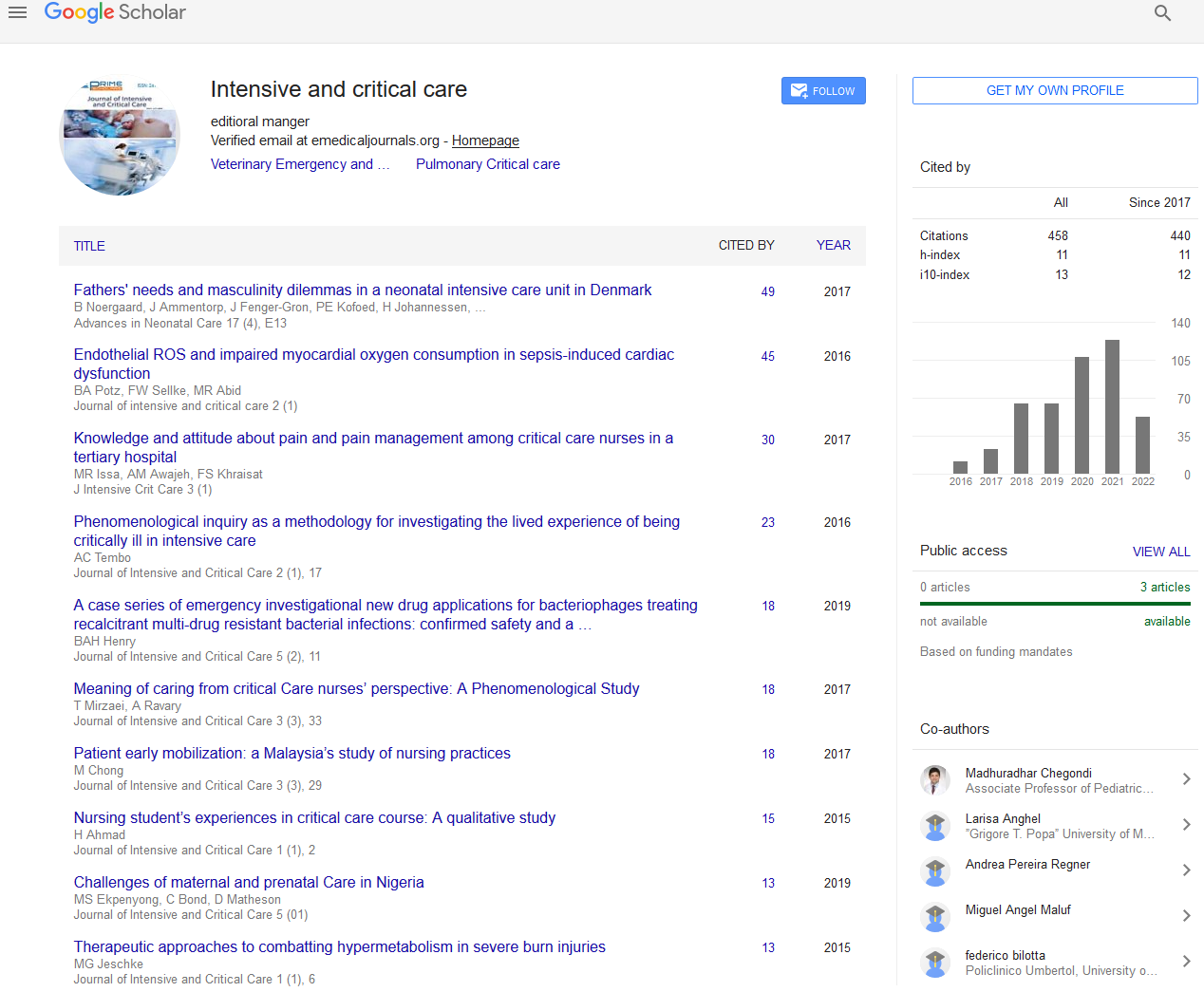Commentary - (2022) Volume 8, Issue 8
Assessment and Management of Cancer Related Fatigue: Health Care Providers Perceptions
Kirsten Kjaer Johansen*
Department of Clinical Research, University of Southern Denmark, Denmark
*Correspondence:
Kirsten Kjaer Johansen,
Department of Clinical Research, University of Southern Denmark,
Denmark,
Email:
Received: 01-Aug-2022, Manuscript No. IPJICC-22-14190;
Editor assigned: 03-Aug-2022, Pre QC No. IPJICC-22-14190 (PQ);
Reviewed: 17-Aug-2022, QC No. IPJICC-22-14190;
Revised: 22-Aug-2022, Manuscript No. IPJICC-22-14190 (PQ);
Published:
29-Aug-2022, DOI: 10.35248/2471-8505.22.8.8.97
Description
Health management includes efforts related to planning, directing,
and coordinating non-clinical activities within health
systems, organizations, and networks. This requires not only
specific knowledge of healthcare operations and technology,
but also soft skills such as the ability to motivate team members,
work with multiple stakeholders, and proactively implement
necessary changes. It is a much focused management
department. Before the advent of rapidly evolving medical
technology, physicians didn’t need healthcare administrators
much. However, with the near-continuous evolution of healthcare
technology (including changes in healthcare data systems)
and the constant changes in healthcare laws and regulations,
hospitals and other healthcare centers need to know that everything
is in order. We need experts in these areas to make
sure. Overall management of medical facilities such as clinics
and hospitals. The medical manager is responsible for ensuring
that the medical facility is operating appropriately in terms of
the budget, the goals of the facility’s physicians, and the needs
of the community. A health manager oversees the day-to-day
operations of the facility. This person will also act as a spokesperson
for communicating information to the media. Health
care professionals should consult with the medical staff on issues
such as medical equipment, departmental budgets, planning
how to enable the facility to meet its goals, and maintaining
good relationships with doctors, nurses, and all department
heads. Work with the leaders of Health managers also make
decisions about performance reviews, employee expectations,
budgeting, social media updates, and billing. When you think
of a career in healthcare administration, you might think of a
hospital administrator. However, these jobs exist at all levels.
For those who prefer a small company, a job as an office clerk
may be a good fit. Similarly, those with a degree in health care
also have the opportunity to work as administrators in home health care facilities. These administrators have different responsibilities.
Handles scheduling for caregivers such as nurses
and her CNAs, as well as managers in nearly all disciplines. To
do this, they can design patient care surveys and respond to
patient complaints that arise. Healthcare administration is an
integral part of a fully functioning hospital or healthcare organization,
without which the industry cannot function effectively.
But what makes management so important? It’s no secret that
most businesses and organizations thrive under good leadership,
but leadership and management are especially important
in healthcare. Most industries provide goods and services,
but healthcare is different because it provides life-saving goods
and services. Services and products provided in the healthcare
industry can prevent people from experiencing pain, curb disease
and potentially save lives. So proper leadership tactics are
essential to make sure everything is done right and everyone
is safe. Healthcare providers must keep up with changing laws
and regulations, and keep pace with medical advances to provide
the best available care. The industry is constantly evolving
and moving forward, so administrators need to steer medical
centers and hospitals in the right direction. Healthcare organizations
need someone who can see the big picture and make
sure the database works as a whole. You can monitor all aspects
of your database. For example, a medical information manager
works with a cyber-security analyst to ensure that the database
is secure enough to protect patient data from exposure. We
can also work with doctors and nurses to streamline the documentation
of procedures and clinic visits. We also regularly
evaluate our data collection and documentation processes to
ensure that our database is functioning optimally. Ultimately,
healthcare management professionals work to oversee and
coordinate all aspects of healthcare delivery. Whether they’re
overseeing hospital operations or coordinating what’s happening
in a small private practice, these managers keep medical
facilities running smoothly for everyone involved.
Acknowledgement
None.
Conflict of Interest
The authors declare no conflict of interest.
Citation: Johansen KK (2022) Assessment and Management of Cancer Related Fatigue: Health Care Providers Perceptions. J
Intensive Crit Care. 8:97.
Copyright: © 2022 Johansen KK. This is an open-access article distributed under the terms of the Creative Commons Attribution
License, which permits unrestricted use, distribution, and reproduction in any medium, provided the original author and source
are credited.

